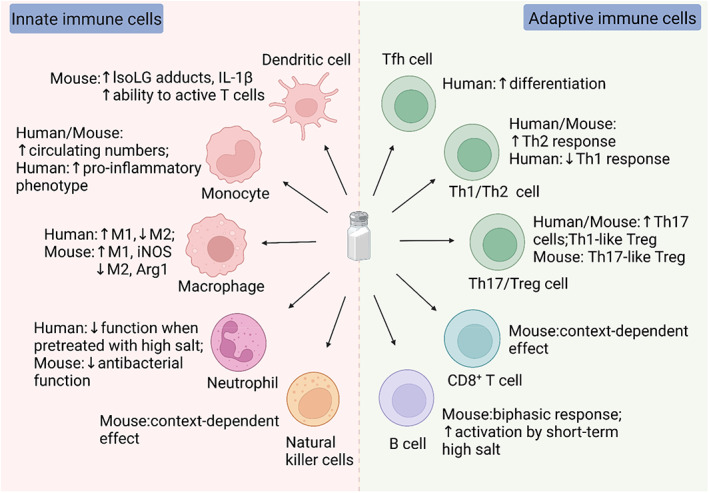FIGURE 1.

The effect of high salt on innate and adaptive immune cells. High salt enhances the formation of IsoLG‐protein adducts in murine dendritic cells, along with increased IL‐1β secretion and subsequent activation of T cells. An HSD increases circulating monocytes in mice and humans, and high salt can induce pro‐inflammatory human monocytes. Moreover, high salt induces M1 macrophages, Th17 cells and Th2 cells, while suppressing M2 macrophages, Treg cells and Th1 cells. The differentiation of human Tfh cells is increased by high salt. The sequence of high salt exposure and stimulation affects the outcome of human neutrophil activation, whereas the antibacterial functionality of murine neutrophils is suppressed by high salt. The high salt effects on murine NK cells and CD8+ T cells are context‐dependent, while murine B cells respond to high salt in a biphasic manner.
